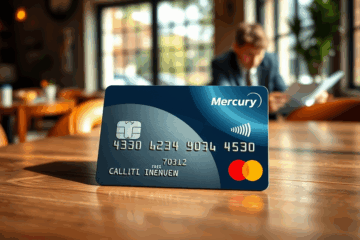Discover Cards That Welcome Foreigners Worldwide
International Cards have revolutionized the way we handle payments while traveling.
In this article, we will explore the widespread acceptance of cards like Visa and MasterCard, particularly in destinations such as Portugal.
We will discuss the benefits of using these cards abroad, including their convenience for payments and withdrawals, as well as the favorable exchange rates they offer.
Understanding how to effectively use international cards can enhance your travel experience and ensure smoother transactions in foreign lands.
Global Card Compatibility Overview
Navigating the digital landscape of payments is crucial for travelers and expatriates aiming for a seamless experience abroad.
Understanding international acceptance transforms how you manage your finances and ensures that your preferred payment methods integrate smoothly into the global economy.
Relevant text highlights that having a credit or debit card with worldwide reach is a game-changer.
Most brands, such as Visa and MasterCard, are widely accepted, providing the convenience of payments in different currencies without experiencing the burden of unplanned transaction fees.
However, note that some merchants may have specific preferences or restrictions that affect the use of international cards.
For expatriates and frequent travelers, foreign card compatibility becomes paramount in preventing any potential disruptions during transactions.
Being equipped with the right payment solutions not only maximizes your purchasing power but also offers better security and ease of use in unfamiliar settings.
By ensuring your credit or debit card supports transactions across the globe, you protect your financial interests and enjoy a more efficient travel experience.
For more insights into how credit cards can accompany you worldwide, consider reading more about International Credit Card by HDFC to expand your understanding of the dynamics involved.
Major Card Networks and Their Reach
Understanding major card networks and their geographical reach is crucial for today’s travelers.
Different regions exhibit varying levels of acceptance for networks like Visa, MasterCard, and others, which can impact how easily travelers access funds and make purchases.
By recognizing these patterns, travelers can better prepare for their journeys and ensure smooth financial transactions.
Global Merchant Reach Comparison
Exploring the global acceptance of major card networks reveals their vast reach.
Visa and Mastercard remain at the forefront with expansive networks that encompass over 100 million merchant locations worldwide, according to the Nilson Report.
In comparison, American Express has been expanding, now accepted at 160 million locations globally.
Meanwhile, Discover and UnionPay, appeal considerably to niche markets, yet offer moderate acceptance worldwide.
These networks illustrate their extensive role in facilitating international transactions effortlessly.
| Card Network | Global Merchant Acceptance |
|---|---|
| Visa | Very High |
| Mastercard | Very High |
| American Express | High |
| Discover | Moderate |
| UnionPay | Moderate |
Why Acceptance Varies Among Networks
Card network acceptance variation hinges on several interchange agreements that define where specific cards are accepted or limited.
Visa and Mastercard are often seen as ubiquitous due to their broader partnerships with numerous banks and merchants around the world.
However, merchant fees, set by these agreements, play a critical role in influencing acceptance.
Higher fees might deter smaller businesses from accepting certain cards, even if they are globally recognized, due to the cost burden.
Moreover, local regulations in different countries can impose additional restrictions or requirements on card usage.
For instance, regulatory environments might limit the interchange rates that can be charged, indirectly affecting the willingness of merchants to accept certain cards.
According to a guide on interchange fees by Stripe, understanding these fees helps optimize payment costs and acceptance strategies.
As a result, both cardholders and merchants must navigate these complex agreements and regulations to ensure successful transactions, ultimately influencing card acceptance in various regions.
Thus, while some cards boast near-global acceptance, these foundational factors determine local usability and effectiveness.
Ensuring Your Card Works Abroad
Ensure smooth transactions with your credit card abroad by taking practical steps to guarantee acceptance at your destination.
Start by notifying your issuer of travel plans to prevent unexpected security blocks due to unfamiliar foreign charges.
Use a credit card with no foreign transaction fees, as these minimize unnecessary costs while abroad.
Keep track of relevant account expiration dates to avoid embarrassing denials.
Consider the following steps to enhance card reliability:
- Notify your issuer of travel plans.
- Ensure sufficient funds and credit availability.
- Check for chip-and-PIN capability since many locations rely on this for transactions over magnetic strip cards.
- Carry multiple cards for added security, especially if one is compromised.
Set up mobile alerts to watch for unusual activity, ensuring peace of mind.
By following these relevant practices, you can travel with confidence knowing your financial tools are ready and accessible.
In conclusion, utilizing international cards like Visa and MasterCard can greatly simplify your travels.
They provide ease of access to funds and competitive exchange rates, making them an essential tool for any traveler.



0 Comments